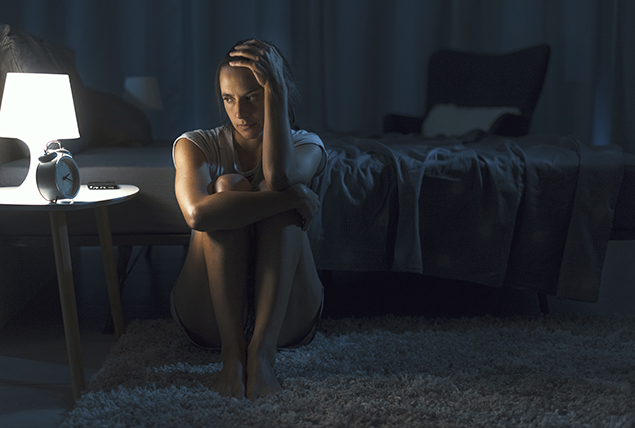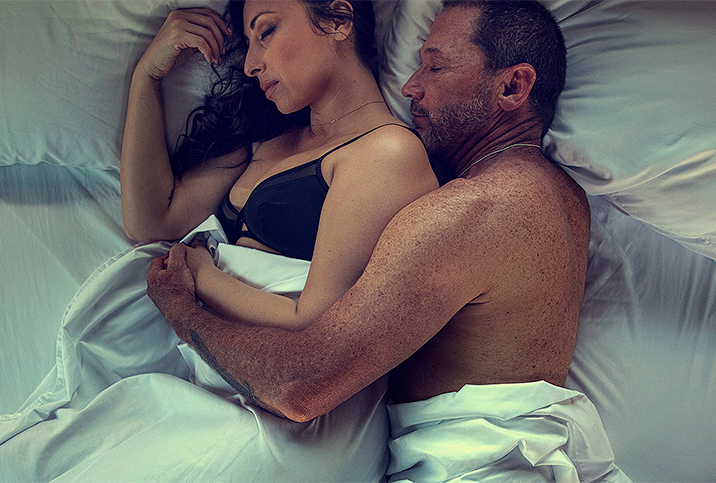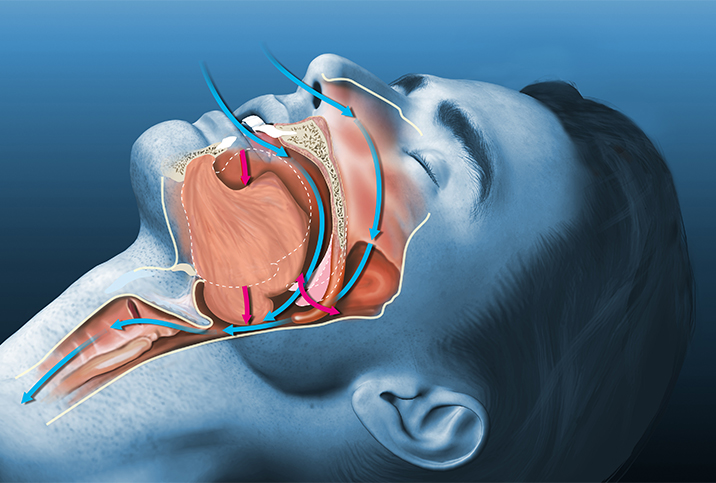What's Life Like When Insomnia Keeps You Up for So Much of It?

The symptoms of insomnia are experienced by as many as 1 in 3 adults in the United States, though only about 10 percent of those would qualify for the more serious medical condition, insomnia disorder.
Along with mental and physical well-being, a lack of quality sleep can lead to sexual dysfunction in both women and men. Research studies indicate sleep deprivation is associated with reduced sexual desire and arousal in women, and is linked to a higher risk of erectile dysfunction (ED) in men, according to the Sleep Foundation.
Performing a quick Google search for insomnia illustrates just how many misconceptions there are about the world's most common sleep disorder. Instead of hitting the message boards to read the horror stories of fellow insomnia sufferers the globe over, let's talk to some trusted sleep specialists to learn the realities of living with insomnia and its impact on your overall health, as well as receive advice on medical practitioners who can treat the condition.
Myths and misconceptions
Separating fact from fiction is a good place to start as our sleep specialists review six of the statements they most commonly hear from their patients:
Myth: There's no obvious cause for insomnia
Reality: "The truth is that most people have insomnia that is secondary to another issue, such as poor sleep hygiene or another medical issue. Few people have true, primary insomnia," said Chelsie Rohrscheib, Ph.D., a researcher in clinical sleep medicine and a sleep specialist at Wesper, a company in New York City that produces wearable sleep diagnosis tools.
Myth: An inability to sleep defines insomnia
Reality: "It's wrong to say that one has insomnia for the sole reason of not being able to fall asleep or get quality sleep. Insomnia is a sleep disorder that continues for weeks and requires diagnosis," explained Po-Chang Hsu, M.D., a medical content expert for SleepingOcean, a Canadian online resource for information and products that support healthy sleep.
"Plenty of insomniacs can fall asleep without issue but instead have difficulty maintaining sleep," Rohrscheib added.
Myth: Watching TV or carrying out tiring activities can help with insomnia
Reality: Hsu noted the truth is actually "quite the opposite."
"Activities that keep the brain active can cause a further lack of sleep," he added.
Myth: Drinking alcohol can help me fall asleep
Reality: "Many people consume alcohol because it makes them feel tired and sleepy," Hsu said. "However, alcohol can cause nocturnal awakening more often and disrupt sleep even more."
Alcohol can cause or worsen sleep apnea, another sleep disorder in which a person experiences interrupted breathing as they sleep, oftentimes causing them to be awakened hundreds of times in one night.
Myth: As we age, we need less sleep, so insomnia isn't going to be a problem
Reality: "The aging brain is at a higher risk for insomnia because the areas that control sleep become dysfunctional," Rohrscheib explained. "Older adults still need seven to nine hours of sleep each night and should be treating their insomnia instead of assuming they can function with less than seven hours of sleep a night."
Myth: Chronic, long-term insomnia can be completely cured
Reality: "Unfortunately, this is not always the case," Rohrscheib noted. "Chronic insomnia can be a lifelong problem. We, as medical professionals, can take steps to minimize and treat your insomnia, but there is always the possibility it can come back if you stop following your treatment plan."
What does living with insomnia look like?
Though each person's experience with insomnia is unique and individual to them, there are characteristics that most cases share. Hsu compared the reality of living with untreated insomnia to a stressful battle in which a quest for the root of the issue may only exacerbate it.
"Generally, individuals with insomnia will stay up during long nights and feel sleepy all day, day after day," he said. "They might not feel sleepy but are often too tired to function properly. They find themselves looking for underlying issues as to why they cannot sleep and they often overthink. They might never be satisfied with their room quality, such as the lighting or noises, even if everything seems optimal for a person without insomnia. Sleep environment optimization can start to feel like an obsessive-compulsive behavior that prevents one from sleeping."
Rohrscheib added that many people with insomnia undergo an exhausting cycle of not getting much sleep one night and subsequently trying to oversleep the next night to make up for what was lost.
"Generally, someone with insomnia will go through a weekly cycle when they'll have a string of bad nights in which they get little to no sleep," she said. "Any sleep they do get will be poor quality. This will usually be followed by a sleep rebound day where they sleep well but they massively overshoot their sleep time, sleeping longer than nine hours. Insomniacs also nap frequently throughout the week to make up for their poor sleep at night."
Hsu noted that living with insomnia may also look like this:
- A disrupted sleep schedule in which one wakes up too early or during the night
- An inability to concentrate or difficulty concentrating on tasks
- An inability to process data and memory or committing mistakes and errors
- Distress, depression or being annoyed by simple things
How does insomnia impact your overall health?
One of the most challenging aspects of living with insomnia is the negative impact on your overall health. Hsu listed the most common health effects associated with chronic insomnia disorder:
- A decreased tendency toward sexual activity
- A weakened immune system
- An increased chance of developing or worsening diabetes
- Being moody, having extreme emotions or acting impulsively
- Chronic stress and worry about sleep or the reason behind not being able to fall asleep
- Not being able to remember things properly
- Heart problems, such as a heart attack or heart failure
- Mental health disorders, such as depression and anxiety
- Weight gain
See a medical professional for your insomnia
The good news for people living with insomnia is that medical professionals around the world are well-prepared to diagnose the case and offer treatment options to help sufferers manage their symptoms and tackle the underlying issues at the root of their condition.
Rohrscheib explained the typical process that someone with insomnia undergoes when they first seek medical care for the sleep disorder.
"First, you should see your primary care provider to investigate whether there are underlying medical issues causing your insomnia, like an illness or hormonal issue," she said. "You may also consider seeing a sleep specialist to investigate whether your insomnia is actually being caused by another sleep disorder, like sleep apnea or restless legs syndrome.
"Because insomnia and mental health issues go hand in hand, you may be referred to a mental health professional if poor mental health is suspected," Rohrscheib continued. "You may consider seeing therapists and coaches who specialize in insomnia treatment, such as specialists who practice cognitive behavioral therapy for insomnia."


















